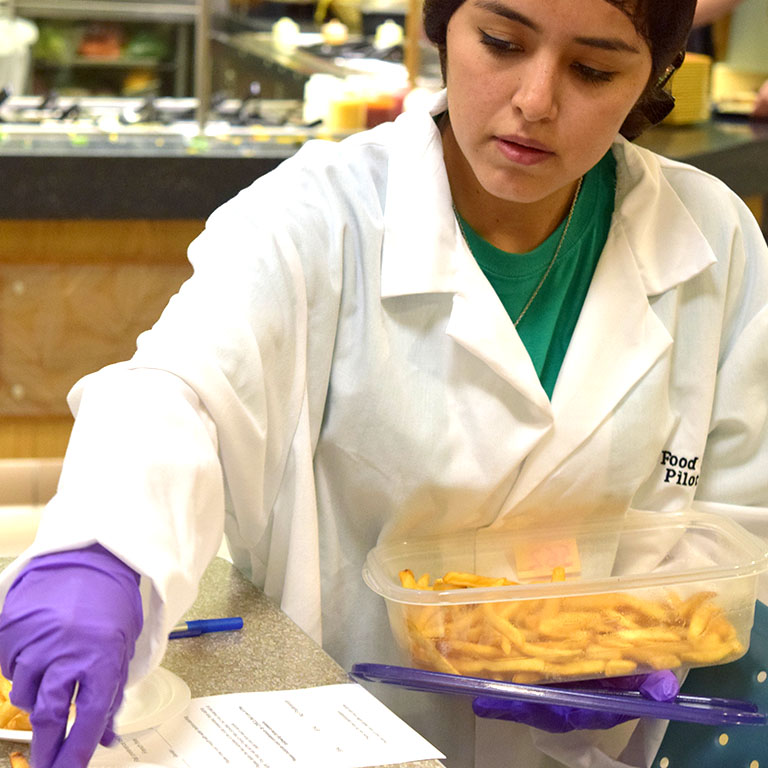Dining & Culinary Offers Healthier Oil

Purdue Dining & Culinary transitioned to the use of a healthier, sustainable and allergen-free fryer oil by the end of 2019.
Dining & Culinary will begin using high-oleic soybean oil in its operations in October, with a complete transition in all operations expected by the end of the year. The soybean oil will be locally sourced from soybeans grown on farms in Indiana. While highly refined soybean oil does contain trace amounts of soy protein, the concentration is too low to elicit an allergy response — making it friendly for people with soy allergies.
High-oleic soybean oil provides a healthier alternative to standard vegetable oils. High-oleic soybeans are free of trans fat and have been shown to produce a 4-11% reduction in calories in various fried foods, according to Qualisoy, an independent, third-party collaboration that promotes the development of soybean traits. The Food and Drug Administration (FDA) states that oils high in oleic acid may also reduce the risk of coronary heart disease.
Dining & Culinary previously partnered with the Department of Food Science in the College of Agriculture to test the performance of locally-sourced soybean oil and its impact on food quality in Hillenbrand Dining Court. Staff performed sensory tests with students, comparing french fries cooked in high-oleic soybean oil with those cooked in canola oil, which had traditionally been used for frying in the residential dining courts. In addition to confirming the health benefits of soybean oil, it was found that fries cooked in the high-oleic soybean oil don't transfer flavors the way canola oil does.
"What this means that when you eat french fries cooked in the high-oleic soybean oil, you don't have to worry that they will taste like something else," says Bruce Haumesser, director of culinary operations and executive chef. "For example, a fish flavor doesn't transfer to the fries."
The testing phase in Hillenbrand Dining Court was recognized with a bronze award in sustainability by The National Association of College & University Food Services (NACUFS) in 2017. NACUFS is a recognized leader of the higher education foodservice industry, helping develop programs and best practices for member institutions.
High-oleic soybeans are a relatively new product to the market, having only been grown commercially since 2011. They are grown in 13 states but are primarily grown and processed in Indiana, Iowa and Ohio. In addition to being locally available, high-oleic soybean oil can be used for a longer period of time in fryers.
"The longer fry life is part of why this is a more sustainable product throughout the entire supply chain," says Haumesser. "We have to buy less of the product to meet our needs, farmers have to grow less of the product to meet our needs, we transport the product a shorter distance with less product involved, and we don't have to use as much energy or space to store the product once we have it."
Dining & Culinary's mission is to nourish and inspire the Purdue community. The organization embraces a focus on co-curricular education and leadership development as an integral part of the Purdue experience. Dining & Culinary offers more than 100 internships and intentional learning opportunities as part of its commitment to partnering with Purdue students.
 .
.